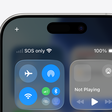iPhone 17 Introduces 'Groundbreaking' New Memory Security Feature
Apple has added a "groundbreaking" new memory security feature to its new iPhone 17 lineup called Memory Integrity Enforcement (MIE), which the company describes as "the most significant upgrade to memory safety in the history of consumer operating systems."

The new security feature targets spyware tools like Pegasus that exploit vulnerabilities to hack targeted devices. According to Apple, MIE provides comprehensive, always-on memory-safety protection covering the kernel and over 70 userland processes, built on the Enhanced Memory Tagging Extension (EMTE).
The new feature is supported by the new A19 and A19 Pro chips found across the iPhone 17 lineup as well as the iPhone Air. Apple says it has also added memory safety improvements for older hardware that doesn't support the new memory tagging features. In addition, Apple is making EMTE available to all Apple developers in Xcode as part of the new Enhanced Security feature that the company released earlier this year during WWDC.
The approach includes mitigation for Spectre V1 attacks that Apple claims works with "virtually zero CPU cost," addressing performance concerns that have plagued similar security features in the past. Apple says these changes make "mercenary spyware" significantly more expensive to develop, and present a major challenge to the surveillance industry.
Based on our evaluations pitting Memory Integrity Enforcement against exceptionally sophisticated mercenary spyware attacks from the last three years, we believe MIE will make exploit chains significantly more expensive and difficult to develop and maintain, disrupt many of the most effective exploitation techniques from the last 25 years, and completely redefine the landscape of memory safety for Apple products.
For in-depth information about the new MIE security feature, readers should refer to Apple's Security Research blog.
Popular Stories
While the iPhone 18 Pro and iPhone 18 Pro Max are not expected to launch for another eight months, there are already plenty of rumors about the devices.
Below, we have recapped 12 features rumored for the iPhone 18 Pro models, as of January 2026:
The same overall design is expected, with 6.3-inch and 6.9-inch display sizes, and a "plateau" housing three rear cameras
Under-screen Face ID...
Apple plans to upgrade the iPad mini, MacBook Pro, iPad Air, iMac, and MacBook Air with OLED displays between 2026 and 2028, according to DigiTimes.
Bloomberg's Mark Gurman previously reported that the iPad mini and MacBook Pro will receive an OLED display as early as this year, but he does not expect the MacBook Air to adopt the technology until 2028 at the earliest.
A new iPad Air is...
Apple today updated its trade-in values for select iPhone, iPad, Mac, and Apple Watch models. Trade-ins can be completed on Apple's website, or at an Apple Store.
The charts below provide an overview of Apple's current and previous trade-in values in the United States, according to the company's website. Most of the values declined slightly, but some of the Mac values increased.
iPhone
...
In select U.S. states, residents can add their driver's license or state ID to the Apple Wallet app on the iPhone and Apple Watch, and then use it to display proof of identity or age at select airports and businesses, and in select apps.
The feature is currently available in 13 U.S. states and Puerto Rico, and it is expected to launch in at least seven more in the future.
To set up the...
iOS 27 is still many months away, but there are already plenty of rumors about new features that will be included in the software update.
The first beta of iOS 27 will be released during WWDC 2026 in June, and the update should be released to all users with a compatible iPhone in September.
Bloomberg's Mark Gurman said that iOS 27 will be similar to Mac OS X Snow Leopard, in the sense...





















